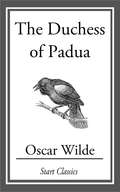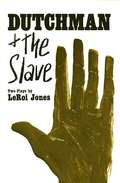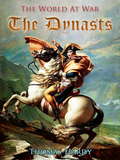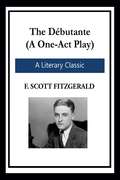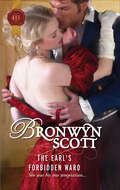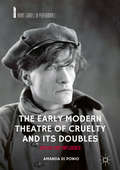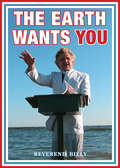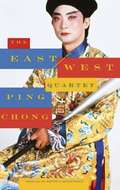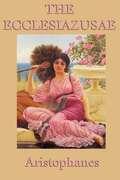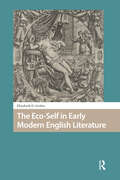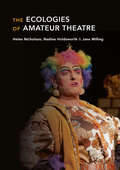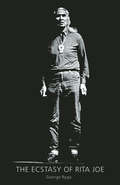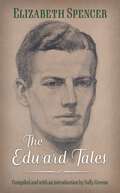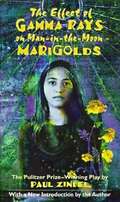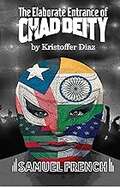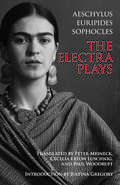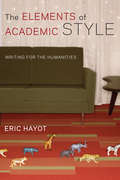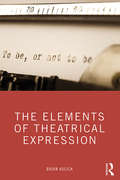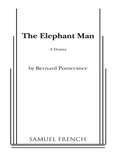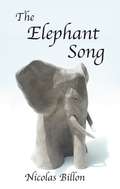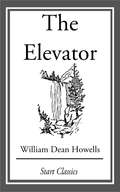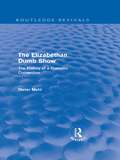- Table View
- List View
The Duchess of Padua
by Oscar Wilde"The Duchess of Padua" is a five-act play by Oscar Wilde which was originally written for American actress Mary Anderson in 1883. Due to her rejection of the play, it was not performed until 1891 by the American tragedian Lawrence Barrett. He changed the name to "Guido Ferranti", the name of the male lead, and while embraced by critics and praised for its lyrical beauty, it failed with the New York public after three weeks to half-empty houses.
The Dutchman And The Slave: Two Plays
by Leroi JonesCentered squarely on the Negro-white conflict, both Dutchman and The Slave are literally shocking plays--in ideas, in language, in honest anger. They illuminate as with a flash of lightning a deadly serious problem--and they bring an eloquent and exceptionally powerful voice to the American theatre. Dutchman opened in New York City on March 24, 1964, to perhaps the most excited acclaim ever accorded an off-Broadway production and shortly thereafter received the Village Voice's Obie Award. The Slave, which was produced off-Broadway the following fall, continues to be the subject of heated critical controversy.
The Dynamics of Inheritance on the Shakespearean Stage
by Michelle M. DowdEarly modern England's system of patrilineal inheritance, in which the eldest son inherited his father's estate and title, was one of the most significant forces affecting social order in the period. Demonstrating that early modern theatre played a unique and vital role in shaping how inheritance was understood, Michelle M. Dowd explores some of the common contingencies that troubled this system: marriage and remarriage, misbehaving male heirs, and families with only daughters. Shakespearean drama helped question and reimagine inheritance practices, making room for new formulations of gendered authority, family structure, and wealth transfer. Through close readings of canonical and non-canonical plays by Shakespeare, Webster, Jonson, and others, Dowd pays particular attention to the significance of space in early modern inheritance and the historical relationship between dramatic form and the patrilineal economy. Her book will interest researchers and students of early modern drama, Shakespeare, gender studies, and socio-economic history.
The Dynasts
by Thomas Hardy"The Dynasts" is an English-language drama in verse by Thomas Hardy. Hardy himself described this work as "an epic-drama of the war with Napoleon, in three parts, nineteen acts and one hundred and thirty scenes". Not counting the Forescene and the Afterscene, the exact total number of scenes is 131. The three parts were published in 1904, 1906 and 1908. Because of the ambition and scale of the work, Hardy acknowledged that The Dynasts was not a work that could be conventionally staged in the theatre, and described the work as "the longest English drama in existence". Scholars have noted that Hardy remembered war stories of the veterans of the Napoleonic wars in his youth, and used them as partial inspiration for writing The Dynasts many years later in his own old age. In addition, Hardy was a distant relative of Captain Thomas Hardy, who had served with Admiral Horatio Nelson at Trafalgar. Hardy consulted a number of histories and also visited Waterloo, Belgium, as part of his research. George Orwell wrote that Hardy had "set free his genius" by writing this drama and thought its main appeal was "in the grandiose and rather evil vision of armies marching and counter-marching through the mists, and men dying by hundreds of thousands in the Russian snows, and all for absolutely nothing."
The Débutante
by F. Scott Fitzgerald"Oh, yes, coming out is such a farce nowadays, you know. One really plays around so much before one is seventeen, that it&’s positively anticlimax."
The Earl's Forbidden Ward
by Bronwyn ScottInnocent debutante Tessa Branscombe senses that underneath her handsome guardian's cool demeanor there is an intensely passionate nature. The arrogant earl infuriates her—yet makes her want to explore those hidden depths….Peyton Ramsden, Earl of Dursley, has no time for girls—especially those who are suddenly given over to his care! Miss Tessa Branscombe, in particular, is trouble. She tempts this very proper earl to misbehave—and forbidden fruit always tastes that much sweeter.
The Early Modern Theatre of Cruelty and its Doubles: Artaud and Influence (Avant-Gardes in Performance)
by Amanda Di PonioThis book examines the influence of the early modern period on Antonin Artaud’s seminal work The Theatre and Its Double, arguing that Elizabethan and Jacobean drama and their early modern context are an integral part of the Theatre of Cruelty and essential to its very understanding. The chapters draw links between the early modern theatrical obsession with plague and regeneration, and how it is mirrored in Artaud’s concept of cruelty in the theatre. As a discussion of the influence of Shakespeare and his contemporaries on Artaud, and the reciprocal influence of Artaud on contemporary interpretations of early modern drama, this book is an original addition to both the fields of early modern theatre studies and modern drama.
The Earth Wants YOU
by Reverend Billy Talen"You must check out the newest from my favorite transcendent and down to earth preacher."--Laurie Anderson, artist, musicianThe Earth Wants YOU is a motivational handbook, filled with inspired visions of a wild, creative, Earth-led cultural revolution. Reverend Billy and the Church of Stop Shopping offer up a heady mix of humor, insightful critique, passionate commitment, emotional catharsis, and example after example of vibrant direct action. Stop shopping and feel the love as you sign up for the struggle of our lives! Earthalujah!Praise for The Earth Wants YOU:"Singing instructions for joining the Earthalujah choir!"--Jodie Evans, CODEPINK"My Earthmojis are smiling for Reverend Billy! And that's all the dirt you're gonna get from me. O;"--Justin Vivian Bond, trans-genre artist, Radical Faerie"Mama Earth will shake us ALL off unless we shake shit UP and shut it DOWN!"--Bertha Lewis, The Black Institute"This is what makes social movements succeed--it's the big love-slog we have to go through to achieve change."--Andy Bichlbaum, The Yes Men"Join Rev and his merry band of activists as they imagine ways of arousing concern for the environment and racial justice."--Coco Fusco, creator of Eu Sou Um Consumidor"When the singing activists hit the high notes in a bank lobby or a DARPA lab or the back aisle of a Walmart, they wipe away the veils hiding the madness of our corporate-controlled, consumer-crazed society."--Annie Leonard, director of Greenpeace USA"Ssssh, listen . . . let the Church of Stop Shopping exorcise your fear, doubt and burnout, and join the Earthalujah Revolution!"-Jess Worth, BP or not BP?"This call to action is at once sobering and encouraging. We have fucked up really badly, but the ability to see it-is the first and hardest step toward fixing it."--Douglas Rushkoff, author of Throwing Rocks at the Google Bus"Reverend Billy's ALL IN! bodies and voices . . . not just clicks and posts, for this small village we call Earth. Preach On!"--Obang Metho, Solidarity Movement for a New Ethiopia"The Stop Shoppers packs a whoop."--Roberto Sifuentes, La Pocha Nostra"In between satire and silence, there is a space of penetrating reckoning for all vibrations that flow counter to the balance of Nature. And from this dynamic and tricky space, the Honorable Reverend and his Holified Choir will shout, sing and sermonize a soul-bound love message of Truthalujah!"--John Sims, The AfroDixie Remixes"The Church of Stop Shopping is in the vanguard of a new movement that challenges this consumer society that is killing our planet."--Mike Roselle, Climate Ground Zero and Coal River Mountain Watch"Billy, Savi and the choir have love and optimistic humor, and they don't give up on people."--David LaChapelle, comedian"He seems to be writing while his actions are going on, like he can write while he's hand-cuffed."--Benny Zable, The Nimbin Environment Centre, NSW Australia"The Earth Wants You takes readers deep inside the heart, mind and balls of the activist-artist. Reverend Billy rocks hard!"--Annie Sprinkle, artist, ecosexual sexecologist"He was a comic act. Now he's evolved into a man compulsively challenging the true extent of the right to protest."--Anohni, creator of the song "4 Degrees"Reverend Billy and his choir of singing-activists are on the front lines of creative direct action, and here they offer up a distillation of the passion, the inspiration, and the hopes for love and survival that fuel their work. In a mix of essays, polemics, surrealist scenarios and news flashes from the frontlines, Reverend Billy answers the question, "What are we to do?" with a resounding chorus of "Take Action NOW!"
The East/West Quartet
by Jessica Hagedorn Ping ChongFor nearly three decades, Ping Chong and his company have written and staged some of the most innovative and arresting examinations of "the Other" on stages in the U.S., Europe, and Asia. His work more than any other artist has explored the ways Asian cultures have intersected with contemporary American society and throughout history.This volume collects four of his masterworks created over the past decade, including:Deshima (1990), a documentary collage of the history of the West and Japan;Chinoiserie (1995), spans centuries, continents and cultures, where the mysterious East meets the mysterious West;After Sorrow (1997), explores the legacy of war in Vietnam;Pojagi (1999), a poetic documentary on Korea from the sixteenth century to today.The Washington Post has said these works are "like poems in their simplicity and power to evoke . . . -carefully wrought and beautifully designed."As an artist , I'm an outsider in American society. As an experimental artist, I'm an outsider in the art world. As a person of color, I'm an outsider; as an immigrant, I'm an outsider; as a gay man, I'm an outsider. It's the position that fate has allotted me, but it's a valuable postion to be in, because I think every society should have a mirror held to it by the outsider."--Ping Chong, 1999Ping Chong was born in 1946 and raised in the Chinatown section of New York City. He began his theatrical career with Meredith Monk and later founded his own company in 1975, which later became Ping Chong and Company. It was created to explore the meaning of contemporary theatre and art on a national and international level. He has created over fifty major works for the stage, including Humboldt's Current, Nosferatu, Kind Ness, and Undesirable Elements. His works have received numerous Obie and Bessie Awards and are performed throughout the world.
The Ecclesiazusae
by AristophanesAristophanes' "Esslesiazusae", written in the early 4th Century BC, marks a crossroads in his career. Post-dating the Peloponnesian War, it reflects a late change in his writing and a much changed society. This edition includes the complete text.
The Eco-Self in Early Modern English Literature (Environmental Humanities in Pre-modern Cultures)
by Elizabeth GruberThe Eco-Self in Early Modern English Literature tracks an important shift in early modern conceptions of selfhood, arguing that the period hosted the birth of a new subset of the human, the eco-self, which melds a deeply introspective turn with an abiding sense of humans’ embedment in the world. A confluence of cultural factors produced the relevant changes. Of paramount significance was the rapid spread of literacy in England and across Europe: reading transformed the relationship between self and world, retooled moral reasoning, and even altered human anatomy. This book pursues the salutary possibilities, including the ecological benefits, of this redesigned self by advancing fresh readings of texts by William Shakespeare, Christopher Marlowe, John Webster, and Margaret Cavendish. The eco-self offers certain refinements to ecological theory by renewing appreciation for the rational, deliberative functions that distinguish humans from other species.
The Ecologies of Amateur Theatre
by Nadine Holdsworth Helen Nicholson Jane MillingThis book is the first major study of amateur theatre, offering new perspectives on its place in the cultural and social life of communities. Historically informed, it traces how amateur theatre has impacted national repertoires, contributed to diverse creative economies, and responded to changing patterns of labour. Based on extensive archival and ethnographic research, it traces the importance of amateur theatre to crafting places and the ways in which it sustains the creativity of amateur theatre over a lifetime. It asks: how does amateur theatre-making contribute to the twenty-first century amateur turn?
The Ecstasy of Rita Joe
by George RygaRita Joe is a Native girl who leaves the reservation for the city, only to die on skid row as a victim of white men's violence and paternalistic attitudes towards First Nations peoples. As perhaps the best-known contemporary Canadian play and a poetic drama of enormous theatrical power, The Ecstasy of Rita Joe had a major influence in awakening consciousness to the "Indian problem" both in whites and Natives themselves.Cast of five women and 15 men. With a preface by Chief Dan George.The Ecstasy of Rita Joe premiered November 23, 1967 at the Vancouver Playhouse.
The Edward Tales
by Elizabeth SpencerIn conferring upon Mississippi native Elizabeth Spencer (1921–2019) the 2013 Rea Award for the Short Story, the jury said that at the then age of ninety-two, she “has thrived at the height of her powers to a degree that is unparalleled in modern letters.” Over a celebrated six-decade career, Spencer published every type of literary fiction: novels and short stories, a memoir, and a play. Like her best-known work, The Light in the Piazza, most of her narratives explore the inner lives of restless, searching southern women. Yet one mercurial male character, Edward Glenn, deserves attention for the way he insists on returning to her pages. Speaking of Edward in unusually personal terms, Spencer admitted a strong attraction to his type: the elusive, intelligent southern man, “maybe an unresolved part of my psyche.” In The Edward Tales, Sally Greene brings together the four narratives in which Edward figures: the play For Lease or Sale (1989) and three short stories, “The Runaways” (1994), “Master of Shongalo” (1996), and “Return Trip” (2009). The collection allows readers to observe Spencer’s evolving style while offering glimpses of the moral reasoning that lies at the heart of all her work. Greene’s critical introduction helpfully places these narratives within the context of Spencer’s entire body of writing. The Edward Tales confirms Spencer’s place as one of our most beloved and accomplished writers.
The Effect of Gamma Rays on Man-in-the-Moon Marigolds: A Drama in Two Acts
by Paul ZindelBeatrice was a mother...and the embittered ringmaster of the circus Hunsdorfer featuring three generations of crazy ladies living under the sloppiest big top on earth. Nanny was no problem. She sat and stared and stayed silent as a venerable vegetable should. Ruth was half-mad and easily bought with an occasional cigarette. But how is the world would Beatrice control Tillie--keeper of rabbits, dreamer of atoms, true believer in life, hope, and the effect of gamma rays on man-in-the-moon marigolds...<P><P> Pulitzer Prize Winner
The Elaborate Entrance Of Chad Deity
by Kristoffer DiazDramatic Comedy CHaracters: 5 male (1 non-speaking) Single Set Finalist for the 2010 Pulitzer Prize for Drama Winner! 2011 Obie Award for Best New American Play Winner! 2011 New York Times Outstanding Playwright Awards Winner! 2008 National Latino Playwriting Award Mace is a professional wrestler. He's a really good professional wrestler. He's not the champion though - that's the impossibly charismatic Chad Deity. When Mace discovers a young India
The Electra Plays
by Paul Woodruff Cecelia Eaton Luschnig Peter MeineckAeschylus: The Libation Bearers; Euripides: Electra; Sophocles: Electra
The Elements of Academic Style: Writing for the Humanities
by Eric HayotEric Hayot teaches graduate students and faculty in literary and cultural studies how to think and write like a professional scholar. From granular concerns, such as sentence structure and grammar, to big-picture issues, such as adhering to genre patterns for successful research and publishing and developing productive and rewarding writing habits, Hayot helps ambitious students, newly minted Ph.D.'s, and established professors shape their work and develop their voices.Hayot does more than explain the techniques of academic writing. He aims to adjust the writer's perspective, encouraging scholars to think of themselves as makers and doers of important work. Scholarly writing can be frustrating and exhausting, yet also satisfying and crucial, and Hayot weaves these experiences, including his own trials and tribulations, into an ethos for scholars to draw on as they write. Combining psychological support with practical suggestions for composing introductions and conclusions, developing a schedule for writing, using notes and citations, and structuring paragraphs and essays, this guide to the elements of academic style does its part to rejuvenate scholarship and writing in the humanities.
The Elements of Theatrical Expression
by Brian KulickThe Elements of Theatrical Expression puts forward 14 essential elements that make up the basic building blocks of theatre. Is theatre a language? Does it have its own unique grammar? And if so, just what would the elements of such a grammar be? Brian Kulick asks readers to think of these elements as the rungs of a ladder, scaling one after the other to arrive at an aerial view of the theatrical landscape. From such a vantage point, one can begin to discern a line of development from the ancient Greeks, through Shakespeare and Chekhov, to a host of our own contemporary authors. He demonstrates how these elements may be transhistorical but are far from static, marking out a rich and dynamic theatrical language for a new generation of theatre makers to draw upon. Suitable for directors, actors, writers, dramaturges, and all audiences who yearn for a deeper understanding of theatre, The Elements of Theatrical Expression equips its readers with the knowledge that they need to see and hear theatre in new and more daring ways.
The Elephant Man
by Bernard PomeranceDramaCharacters: 6 male, 2 female w/ doubling. Unit set / . The Elephant Man is based on the life of John Merrick, who lived in London during the latter part of the nineteenth century. A horribly deformed young man, victim of rare skin and bone diseases, he has become the star freak attraction in traveling side shows. Found abandoned and helpless, he is admitted to London's prestigious Whitechapel hospital. Under the care of celebrated young physician Frederick Treves, Merrick is introduced to London society and slowly evolves from an object of pity to an urbane and witty favorite of the aristocracy and literati only to be denied his ultimate dream, to become a man like any other. Winner of numerous Tony Awards including Best Play. . "Ravishing theatre....Utterly fascinating...A distinguished piece of work."-New York Daily News . "An enthralling and luminous play. Haunting, splendid..."-The New York Times. Wonderful, moving and purely theatrical. A giant of a play!"-New York Post. "A moving drama, lofted on poetic wings, it nests in the human heart."-Time
The Elephant Song
by Nicolas BillonAn eminent psychiatrist has vanished from his office. The last person to have seen him is Michael, a troubled patient. Dr. Greenberg, the hospital director, is determined to question Michael, ignoring the head nurse's cryptic warnings. Michael speaks of elephants and opera—with the occasional hint of murder and foul play. Fraught with mind games and verbal tugs-of-war, The Elephant Song is a cat-and-mouse game that will keep you guessing until its haunting conclusion.
The Elevator
by William Dean HowellsWilliam Dean Howells (1837-1920) was an American realist author and literary critic. He wrote his first novel, Their Wedding Journey, in 1871, but his literary reputation really took off with the realist novel A Modern Instance, published in 1882, which describes the decay of a marriage. His 1885 novel The Rise of Silas Lapham is perhaps his best known, describing the rise and fall of an American entrepreneur in the paint business. His social views were also strongly reflected in the novels Annie Kilburn (1888) and A Hazard of New Fortunes (1890). While known primarily as a novelist, his short story "Editha" (1905) - included in the collection Between the Dark and the Daylight (1907) - appears in many anthologies of American literature. Howells also wrote plays, criticism, and essays about contemporary literary figures such as Ibsen, Zola, Verga, and, especially, Tolstoy, which helped establish their reputations in the United States. He also wrote critically in support of many American writers. It is perhaps in this role that he had his greatest influence.
The Elizabethan Dumb Show: The History of a Dramatic Convention (Routledge Revivals)
by Dieter MehlFirst published in English in 1965, this book discusses the roots and development of the dumb show as a device in Elizabethan drama. The work provides not only a useful manual for those who wish to check the occurrence of dumb shows and the uses to which they are put; it also makes a real contribution to a better understanding of the progress of Elizabethan drama, and sheds new light on some of the lesser known plays of the period.

